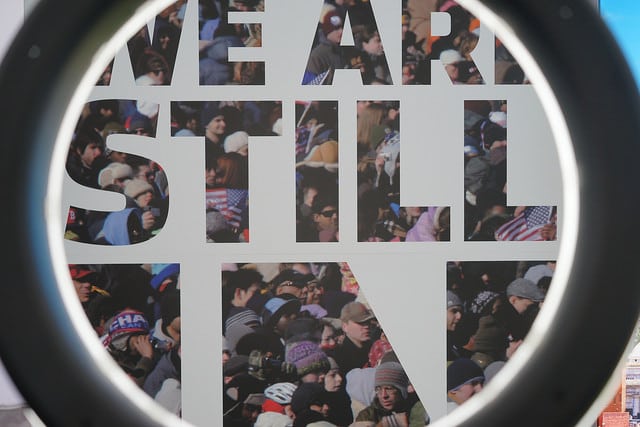 Photo Courtesy: Schuyler Null (WRI)
Photo Courtesy: Schuyler Null (WRI)
A Year After America Said ‘Adieu’ to the Paris Climate Agreement
It has been a year since President Donald Trump announced the United States’ withdrawal from the Paris Climate Agreement. The effects of climate change are increasingly tangible. The damage caused by recent natural disasters such as Hurricane Maria in San Juan, Puerto Rico and the Whittier Wildfire in Santa Barbara, California make it evident that climate change should remain a top national security priority for the United States. One year after the U.S. withdrawal from the Paris Climate Agreement, it is essential to evaluate American and global progress towards its goals.
Many climate advocates are concerned that the weight of the Paris Climate Agreement has lessened without U.S. leadership and fear a chilling effect on the accord’s momentum. Todd Stern, former U.S. Special Envoy for Climate Change, stated at a World Resources Institute conference on May 30th, “In the absence of the United States, you have a phenomenon of a fair number of countries…trying to pull back a little bit on some of the things that were agreed to, some of the compromises that were reached in Paris.” Stern asserts that the lack of American leadership sends a grave message to other nations that climate security is not a pressing issue.
A Climate Policy study proposes that, due to the lack of U.S. involvement, the Paris Climate Agreement’s 2°C global temperature reduction target is unlikely to be reached. For this goal to be attainable without the United States presence, increased global reduction efforts would be necessary, resulting in economic burdens for major developing countries, increasing political and economic instability in critical regions.
While the U.S. cannot officially withdraw from the Paris Climate Agreement until November of 2020 — as there is a 4-year delayed exit period — the withdrawal announcement is representative of how the U.S. prioritizes climate change issues. As such, the U.S. is still present at climate negotiations, with State Department members attending various meetings at the headquarters of the Framework Convention on Climate Change in Bonn, Germany. Although no new policies have been enacted, President Trump has toyed with the idea of returning to a similar climate agreement, given it is a “good deal” for the United States.
Despite the lack of federal leadership, many regional and local leaders in the U.S. are taking action, proving to be hopeful for the future of climate policy. Local and state governments act as the first line of defense against the impacts of climate change. Efforts such as the “We are Still In” declaration and America’s Pledge are part of the larger American Cities Initiative that promotes innovation and advances climate-conscious policies. For instance, New Jersey Governor Phil Murphy signed legislation to advance New Jersey’s clean energy economy pledging to obtain 50% of the state electricity from renewable sources by 2030, and 100% by 2050. The same legislation vows to maintain the state’s nuclear energy supply, which already provides 40% of the state’s energy.
In addition, American mayors have rallied together to commit themselves to the goals of the Paris Climate Agreement. The United States Conference on Mayor’s Climate Protection Agreement is signed by 1060 mayors, dedicated to reducing their cities’ carbon emissions below 1990 levels, in compliance with the Kyoto Protocol. The document also urges state governments to enact climate-friendly policies and Congress to pass bipartisan greenhouse reduction legislation. The Global Climate Action Summit, to be held on September 12, 2018, will “celebrate the extraordinary achievements of states, regions, cities, investors, and citizens with respect to climate change.”
The Paris Climate Agreement is very much alive on the regional and local scale in America, despite the lack of initiative shown by the federal government. As a changing climate continues to pose a national security threat, grassroots efforts are proving to be an effective alternative to federal action. These efforts illustrate Americans’ commitment to combating climate change, signaling to the world that while the Trump administration may be out, the American people are still in.





